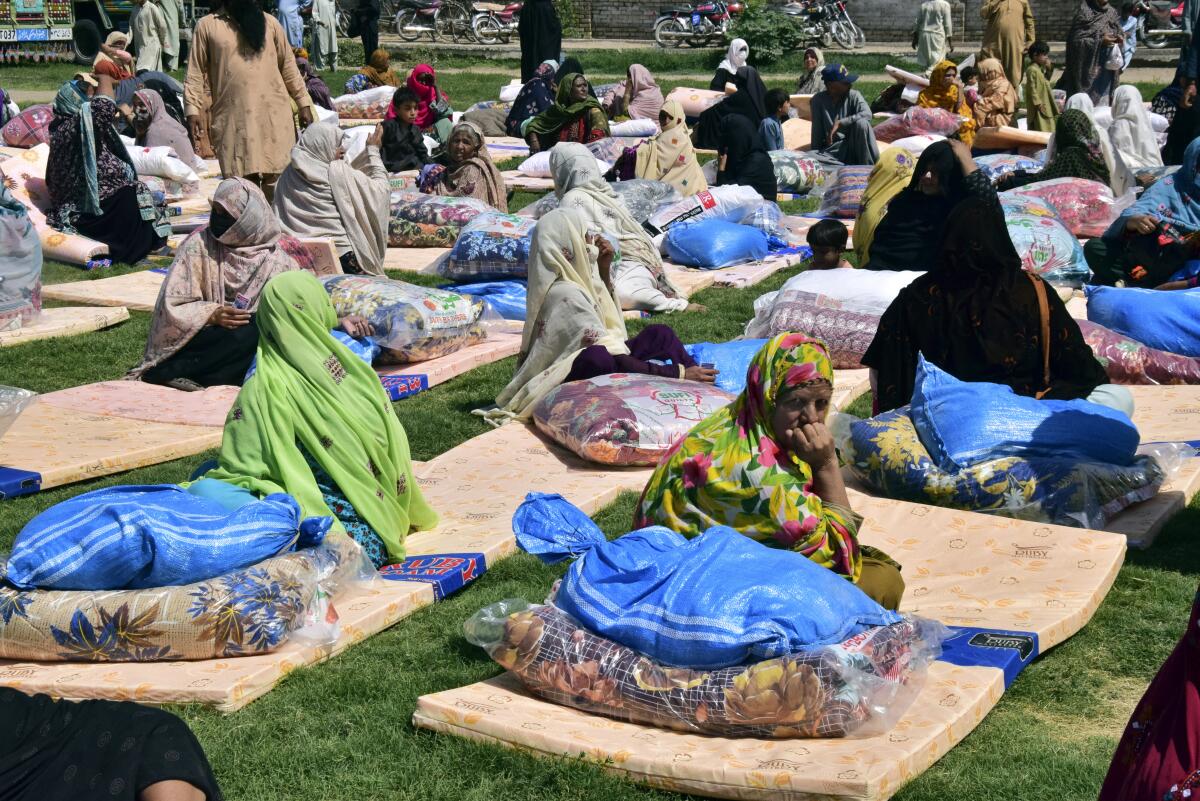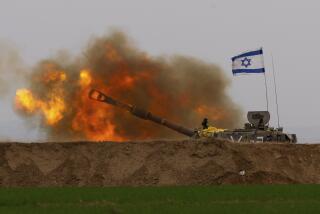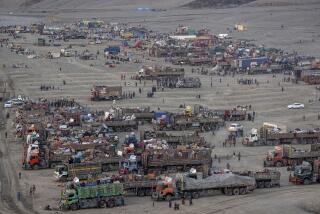Pakistani prime minister says his flooded country faces food shortages

- Share via
ISLAMABAD, Pakistan — Pakistan is grappling with food shortages after flooding left the impoverished country’s agriculture belt underwater, the prime minister told the Turkish president by phone, as authorities scaled up efforts Monday to deliver food, tents and other items.
Prime Minister Shahbaz Sharif spoke to Turkish President Recep Tayyip Erdogan to thank the country for dispatching food, tents and medicine by 12 military aircraft, four trains and Turkish Red Crescent trucks.
Sharif briefed Erdogan about the government’s relief activities and sought assistance from Turkey in overcoming the “food shortage,” according to a statement. Sharif also sought help from Turkey on reconstruction work in the flood-hit areas.
More than 660,000 people, including women and children, are living at relief camps and in makeshift homes after being displaced by the floods. The country’s military, United Nations agencies and local charities are providing food to the flood victims.
Pakistan relies heavily on its agricultural output and occasionally exports surplus wheat to Afghanistan and other countries. Now it is in talks to import badly needed wheat and vegetables, including to people not directly affected by the floods. Meanwhile, the price of food is rising.
Until last week, floodwater was covering about a third of Pakistan, including the agriculture belt in the eastern Punjab and southern Sundh provinces. Initially, authorities in Pakistan said the floods caused $10 billion in damage; they now say the amount is far higher. That has forced Pakistan and the U.N. to urge the international community to help.
In response, U.N. agencies and various countries, including the United States, have sent more than 60 planeloads of aid. Since last week, Washington has sent three military planes to deliver food.
Three more U.S. military planes carrying aid landed Monday in Pakistan’s worst-hit Sindh province, according to a statement from the Foreign Ministry. So far 10 such flights have arrived in the area. Twenty U.S. aid flights are expected to arrive in Pakistan before Friday. The U.S. also plans to distribute cash to those in need.
Last week, U.N. Secretary-General António Guterres traveled to flood-hit areas of Pakistan and called on the world to stop “sleepwalking” through the environmental disaster. He assured Sharif that he will do his best to highlight the crisis.
Planning Minister Ahsan Iqbal said at a news conference Monday that Pakistani authorities and international aid agencies are assessing the damage that has affected 33 million people. He said the government would proceed with transparency in the distribution of aid.
Meanwhile, the International Rescue Committee on Monday warned of mounting economic losses, likely leading to food shortages and an increase in violence against women. In a statement, the group said the floods have destroyed more than 3.6 million acres of crops in Pakistan.
“The acute loss of farmland and agriculture is likely to be felt in the months and years ahead. It is vital that the humanitarian response remains fully funded in order to give the people of Pakistan the best chance of rebuilding their lives,” said Shabnam Baloch, IRC’s director in Pakistan.
Deluges from the Indus river and Lake Manchar in the Sindh province continued to pose a threat Monday to Dadu, a district in the south where rescuers were evacuating villagers by boat. Light rain is expected in flood-hit areas this week, according to the country’s weather service.
More to Read
Sign up for Essential California
The most important California stories and recommendations in your inbox every morning.
You may occasionally receive promotional content from the Los Angeles Times.













